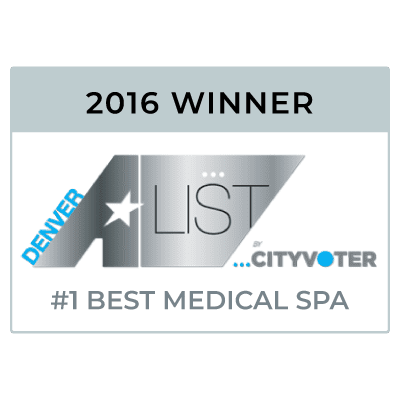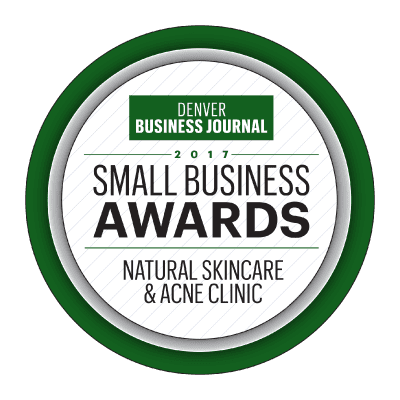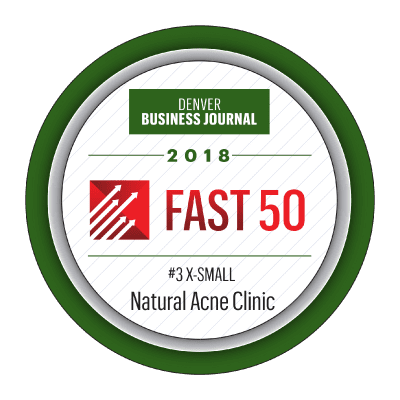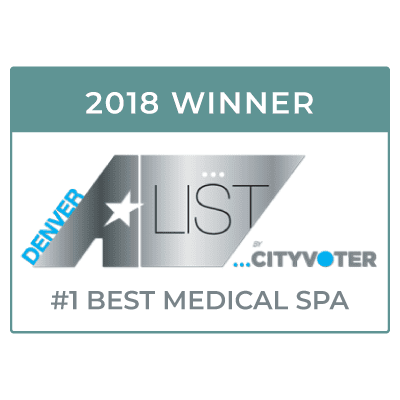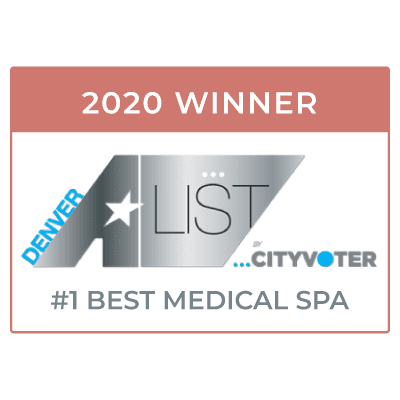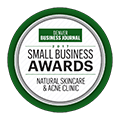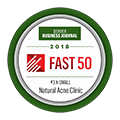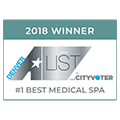Do you know YOUR primary acne cause? Still struggling with an unsure self-diagnosis?
We created a short quiz to help you Discover YOUR Acne Cause
Having healthy, glowing skin is desired by many. But little do people know that the secret to achieving that goal is to have a skincare routine that works. Whipping up a skincare routine that will give you the skin of your dreams may not always be as simple as it sounds. You will need to consider a lot of variables, and there are hundreds of products out there.
But no worries, we’ve prepared this guide to help put you on the right track. Just don’t give up when you don’t see results right away. Keep in mind that products will take time to work their magic.
The Different Skin Types
A skincare routine will vary from person to person because each type of skin is unique. That is why before we jump into the various skin regimens, you must first determine your skin type so that you can address your skin concerns adequately.
There are five different types of skin; Normal, Dry, Oily, Combination, and Sensitive. Generally, one acquires skin type through genetics. But it may still change throughout your lifetime, as other factors will affect your skin. Things like diet, lifestyle, age, the climate of the region where you live, and more.
Do you know what type of skin you have? Read below to find out!
Normal
Normal skin types have the right balance of moisture and sebum (the body’s natural oils) production in the skin. This type of skin is less likely to break out or suffer from skin conditions.
Common signs of normal skin:
- Pores are not too visible
- Free of blemishes
- Skin has a smooth texture
- Not prone to sensitivity
- Neither too oily or too dry
Dry
Dry skin types produce inadequate moisture and natural oil in the skin. It lacks Natural Moisturizing Factors (NMFs) which attract and bind water to the skin.
Common signs of dry skin:
- Skin feels tight and rough
- Skin is scaling, flaking, or feels itchy
- The complexion of the skin looks dull and blotchy
- Pores are not too visible
- Skin is prone to chapping and cracking
Oily
This type of skin produces an excess of sebum. It can be triggered by factors like genetics, stress, hormonal imbalance, or medication. Typically, oily skin types will have clogged or congested pores, making it prone to issues like acne.
Common signs of oily skin:
- Pores are large and visible
- Skin is shiny or looks greasy
- Skin looks plump and thick
Combination
A combination skin type means having oily skin in a particular part of the face and dry skin in another part of the face.
Common signs of combination skin:
- Oily T-zone area
- Dryness in cheeks
- Enlarged pores in the T-zone area
Sensitive
Sensitive skin types are prone to inflammation, irritation, stinging and burning. This skin type can also have a harsh reaction to certain ingredients. But with most sensitive skin, using the right products can help solve the common issues associated with this skin type.
Common signs of sensitive skin:
- Redness
- Burning sensation on the skin
- Skin feels dry and itchy
Acne-Prone
This type of skin has a proclivity to develop comedones and pimples. Acne or Acne Vulgaris, is a non-contagious skin condition caused by the inflammation and infection of the sebaceous glands in the skin. Although most common among adolescents, some symptoms may persist into adulthood.
Common signs of acne-prone skin:
- Oily and shiny skin
- Small, red, and tender lumps (papules) beneath the skin’s surface
- Papules with pus at the tip (pustules)
- Large, solid, and painful bumps (nodules)
- Typically appears in the face, neck, shoulders, back, and chest
A Guide To Skincare Products
Now it’s time to be educated about skincare products. The kinds of products you put on your face will affect the overall health and condition of your skin.
If you’ve ever been overwhelmed by the different kinds of skincare products in the market, here’s a guide on the necessities you should know and be using.
Cleanser
Cleansing is the most fundamental step in caring for the skin – this is non-negotiable. The right cleanser should not strip your skin (culprit: SLS cleansers) of natural oils yet should aid in removing the dirt, effects of air pollution, and excess sebum in your face. Thus, leaving it perfectly clean and ready for the next steps.
Avoid cleansers with sodium lauryl sulfate (SLS), sodium lauryl ether sulfate (SLES), scents, and perfumes. If your skin experiences stinging, tightness, or dryness after cleansing, opt for a gentle or hydrating cleanser instead of an oily skin cleanser. Also, if your skin becomes too greasy within a short time after cleansing, opt for a stronger gel cleanser to clean your skin.
Toner
Using toners will prep the skin, so it gets the most optimal results from skincare products. It allows the skin to absorb products more effectively. Plus, toners help balance the pH level of the skin, and a pH-balanced skin means healthy skin.
You can apply your toner by soaking a cotton pad and gliding it across your face gently. You may also spread your toner on the palms of your hands then pat it onto your skin. Prevent irritating your skin by avoiding toners that contain alcohol and fragrances.
Serum
Serums contain potent and concentrated ingredients that help target specific skin concerns. It is made up of small molecules that sink deep into the skin.
To apply serums, just gently tap it onto your skin’s problem areas.
Moisturizer
All skin types benefit from moisturizers. This product locks in moisture and allows hydration into the skin. It also helps nourish, smoothen, and plump the skin.
Check the ingredient list of your moisturizer, avoid moisturizers with artificial fragrances, dyes, parabens, or phthalates.
Sunscreen
Sunscreen helps protect the skin from damage against harmful UV rays, premature aging, and even skin cancer, making it an essential product in your skincare regimen.
The most common chemicals found in sunscreens are Oxybenzone, Retinyl Palmitate, and Parabens. Oxybenzone absorbs UVA and UVB rays, while Retinyl Palmitate is a form of Vitamin A for acne. Both protect the skin from the harmful effects of the sun and no known studies have concluded that either of these substances is cancerous
However, a few studies suggest that Parabens, which are preservatives used in many cosmetic products like sunscreens, act like estrogen in the body, which can hasten the growth of breast cancer tumors. More likely, though, scientists believe that people who use sunscreens most are the same people who expose themselves to the sun more often, and may not be using it properly, hence, the greater risk.
Sunscreen (preferably SPF 30 or higher) should be applied daily, at least 20 minutes before going outdoors even on a cloudy day. Nowadays, even when indoors, our skin can still be exposed to UV rays and blue light from gadgets like smartphones, laptops, and computers. A sure way of protecting your skin is by wearing sunscreen.
ADDITIONAL NOTE:
With products, consistency is essential. It takes at least six weeks to see results. Pay close attention to the changes in your skin, check how your skin reacts to the products then adjust your routine accordingly. Also, NEVER apply products to your face when you have dirty hands.
Daily Skincare Routine For Normal Skin Types
As mentioned, normal skin types are well-balanced. Maintenance for this skin type is still essential, though, to always keep the skin healthy and radiant.
Star Ingredients
The ingredients that work best with this skin type are Niacinamide, Green Tea, Vitamin C, Vitamin E, Glycerin, Hyaluronic Acid, Aloe, Fruit, and Floral extracts.
AM Routine
Cleanse skin with a mild foaming cleanser or any water-based cleanser. Then tone skin with a powerful antioxidant like Coenzyme Q10. After toning, apply a light-weight lotion. Then apply a layer of sun protection.
Tip: Spritz your face with rose water or a facial mist throughout the day to liven up the look of your skin.
PM Routine
Cleanse skin with a non-drying creamy facial cleanser. Apply your toner while your skin is still a bit damp. Then use an antioxidant serum like Vitamin C to help repair your skin. Finish off with a creamy moisturizer.
Daily Skincare Routine For Dry Skin Types
For dry skin types, moisture and hydration are much needed for their care.
Star Ingredients
The ingredients that work best with this skin type are Non-fragrant plant oils. Examples of these are Argan Oil, Marula Oil, and Evening Primrose Oil, as well as Glycolic Acid, Lactic Acid, Hyaluronic Acid, and Ceramides.
AM Routine
Cleanse with lukewarm or cold water only, as hot water strips the skin of natural oils, further drying your skin. Look for a gentle, hydrating cleanser to clean your face, or you may consider using a micellar water solution for a no-rinse option.
After cleansing, it’s essential to use an alcohol-free toner to prevent your skin from drying up even more. Then use a hydrating, water-based serum and moisturizer to prevent your skin from looking dull. Finish with a layer of sunscreen.
PM Routine
Use gentle, hydrating cleansing milk or cream-based cleanser with facial oils to clean and nourish the skin. Then keep your skin moist by applying an emollient-based toner. It is best to use your toner on skin that is still a bit damp for better absorption.
Continue to apply your serum, preferably one with an intensive hyaluronic acid serum to prevent moisture loss while you sleep. You may also opt to apply facial oil after your serum to boost skin radiance and hydration. Then, seal all products with a creamy moisturizer.
Tip: When the weather is cold, and the humidity is low, your skin is more prone to irritation, redness, and dryness due to the lack of moisture. Consider investing in a humidifier to add moisture into the air and your skin.
Daily Skincare Routine For Oily Skin Types
Keep oil at bay and prevent greasy-looking skin. Your goal should be to balance your skin and not dry it out.
Star Ingredients
The ingredients that work best with this skin type are Witch Hazel Extract, Tea Tree Oil, Ginseng, Rosehip, Salicylic Acid, and Glycolic Acid.
AM Routine
Cleansing is vital for people with oily skin because oil builds up quickly in the skin. Opt for a gel-based or foam cleanser to keep your skin clean. And if you are suffering from acne, look for a cleanser with antibacterial properties like tea tree to help combat acne.
After cleaning, rebalance your skin’s pH level with a refreshing toner then use a lightweight, water-based moisturizer. Look for a moisturizing product that is oil-free and non-comedogenic. Of course, don’t forget to put on sunscreen.
PM Routine
If you normally wear make-up, it is recommended that you clean your face twice at night. Double cleansing is a well-known method of cleaning your face with an oil-based cleanser first then with a water-based cleanser second.
Then use a toner with ingredients like AHA or BHA so it can penetrate deep into your pores and remove the remaining excess oil and dirt from your face. Then hydrate your skin with a moisturizer.
Tip: Exfoliate after cleansing once or twice a week to slough off dead skin and prevent pores from being clogged and congested.
Daily Skincare Routine For Combination Skin Types
Caring for a combination skin type may be a bit tricky as some areas of the face are dry while other areas are oily. But, with a little patience, your skin can look just as good, too.
Star Ingredients
The ingredients that work best with this skin type are Lactic Acid, Green Tea, Aloe Vera, Honey, Calendula, and Hyaluronic Acid.
AM Routine
A mild, creamy cleanser or micellar water works well on this skin type. You should then balance the pH level of your skin with an alcohol-free toner. Follow it up with an antioxidant serum, a lightweight water cream moisturizer, and sunscreen.
PM Routine
Cleanse skin with a mild, cream-based cleanser. Exfoliating once or twice weekly is optional but recommended. After cleansing, apply an alcohol-free toner. Be sure to avoid applying a toner with witch hazel or tea tree on the dry parts of your face.
Gently pat down your face with a rich serum, preferably, one that contains hyaluronic acid. Then apply a heavy emollient moisturizer on the dry parts of your face and light, gel cream-based moisturizer on the oily parts of your face.
Tip: Try multi-masking once or twice a week to add glow to your skin. Multi-masking means applying different types of face masks to different areas of your face to address different skin concerns at the same time.
Daily Skincare Routine For Sensitive Skin Types
Sensitive skin needs special care, check the list of ingredients in the products and avoid harsh chemicals, parabens, dyes, and sulfates.
Star Ingredients
The ingredients that work best with this skin type are Oatmeal, Aloe Vera, Cucumber, Chamomile, and Rice Extract.
AM Routine
Find an unscented or soap-free cleanser to use in the morning to clean and refresh your skin, then soothe skin with a gentle toner. Hydrate your skin with a light moisturizer then top it off with sunscreen. Mineral sunscreen works best with this type of skin.
PM Routine
Use a gentle cleansing lotion, gel or oil that will effectively remove your makeup as well as clean your face.
Check to see if your skin can tolerate any serums with acids like mandelic acid. Slowly introduce the acid into your skin first. If your skin reacts well to it, use it at least twice a week. Then use a gel or water-based moisturizer to seal in moisture unto your skin.
Tip: Avoid chemical sunscreen and physical exfoliants. Go for fragrance-free products with simple ingredients to lessen the chances of having an allergic reaction to the product.
Daily Skincare Routine For Acne-Prone Skin Types
Several factors such as hormonal acne fluctuations during puberty and pregnancy, climatic location (hot and humid climates), and even the use of particular medication and cosmetics can trigger the breakout of acne. It is especially important to adopt a daily skin care routine if your skin is prone to acne.
Star Ingredients
The best ingredients to address acne-prone skin are Salicylic Acid, Vitamin A & C, Exfoliating Granules, Hyaluronic Acid, Kaolin Clay, and Benzoyl Peroxide.
AM Routine
Use your fingertips or a soft washcloth to thoroughly wash your skin. Use a gel or foam-based cleanser that is non-comedogenic, non-allergenic, and non-irritable. These products can remove dirt but still prevent the skin from being damaged.
Use a cotton ball or smooth pad to apply toner to your face and neck to help remove oil, makeup, and cleanser residues as well as hydrate and prevent skin blemishes. Make sure to use toners that don’t dry out your skin.
Smooth on your prescribed or over-the-counter acne treatment creams. Make sure your face is thoroughly clean and dry before applying your creams. Also, let your skin absorb the medication before proceeding to the next step.
Some hormonal acne medications may dry out skin, so it is important to apply oil-free and non-comedogenic moisturizing gels or lotions to prevent the skin from drying or peeling.
PM Routine
If you wear makeup during the day or your day’s activities (such as extensive workouts or sports) cause you to perspire heavily, do a double wash at night. That means cleanse, rinse well, then repeat. Doing this will make sure all the makeup, dirt, and sweat are washed away every night.
Apply toner on your face and neck following the same directions in the morning routine.
Apply your prescribed or over-the-counter acne treatment creams following the same directions in the morning routine.
Moisturize your skin with an oil-free and non-comedogenic moisturizing lotion.
The Importance Of Having A Proper Skincare Routine
Different types of skin require unique care. Even if a product is known to be phenomenal and life-changing, you might not see as fantastic a result if it’s not meant for your facial type. Not only is that a waste of money and effort but you might also harm your skin that way.
There is not one skincare routine that fits all types of skin. These regimens are to be adjusted according to your individual needs. So having a proper skincare routine ensures that your skin stays healthy by receiving the right products and treatments.
